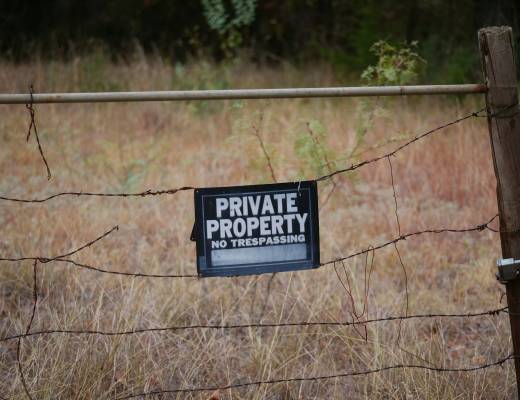Want to build backlinks to your site without having to worry about accidentally using illegal tactics? Here are five ways to
accomplish that goal.
1. Work with a professional content marketing agency
You need two things to get backlinks: quality content and relationships with publishers. Both of these take time to develop. If you don’t have time to compose all your content and also do outreach for connections, you may need a content marketing agency.
A
white-hat content marketing agency will provide you with high-quality content written by talented people who understand and incorporate SEO principles into the work. Not all link-building promises are realistic, however. Unrealistic commitments indicate either deception or inexperience.
How to choose the right content marketing agency
Before you sign any contracts, verify client performance and make sure you work only with agencies that commit to long-term results. Professional SEO companies won’t promise quick results.
Most important, avoid agencies that assert they will get you to the top of Google for specific keyword phrases. SEO is far more complex than that.
Boosting clients to the top of Google in 24 hours used to be a popular black-hat tactic that only worked over the short term. Today, it’s useless and requires the use of tactics that can get your entire website blacklisted by Google.
2. Build your own relationships
Though you’ll be limited in how many relationships you can build single-handedly, there are several benefits to assembling your own connections:
- Deeper relationships generate bigger perks. When you focus personally on your connections, you might reap greater perks than a content marketing agency would. For example, your connection may offer you a regular guest posting spot or invite you onto their podcast.
As an individual, you have the ability to develop deeper relationships. You won’t have time to create deep connections with everyone, though, so focus on the most promising, win-win situations.
- A personal touch could connect you with a future business partner. Your effort to create connections for link building might turn into an official partnership or a private affiliate opportunity.
- You can negotiate. Content marketing agencies have solid connections with publishers, but the publishers set the rules. When you’re building personal relationships, however, you have the opportunity to negotiate.
There’s not much to negotiate in terms of link building per se, but little things can be important. For example, you want control over the subject of your article, the title, the anchor text, and your ability to use specific keywords and phrases. It’s also optimal to get “dofollow” links so search engines accord you some link power.
Aim to create business relationships on friendly terms that are more than transactional. That’s the kind of relationship that rewards negotiation.
Without a large team, it may be difficult to forge a massive array of relationships, and that’s okay. Focus on the ones you believe will benefit both parties the most.
3. Ask for links
Asking for links is like asking for the sale: If you don’t ask, you won’t receive.
When people wonder why their web pages aren’t converting well, it’s often because they haven’t asked for the sale. Some folks are just untrained, but some people avoid asking directly for the sale on their sales page and email copy. However,
asking for the sale is almost always a required component to actually getting the sale.
The same is true for links. There are plenty of opportunities to acquire great backlinks, but you have to ask.
For example, say you have a client who praises your services on their website. If they haven’t yet linked to your site, they’re likely to if you ask.
4. Offer to replace broken links on relevant websites
Over time, links become broken when people either abandon a project or forget to set redirects. If you come across a broken link on a website that gets a decent amount of traffic, that’s an opportunity to acquire a good backlink.
It also helps the website owner reduce their 404 errors. Here’s how to make it work.
- Find an archive of the non-existent page in the Wayback Machine to see the content and determine why it was linked. For example, was it linked to support data or to back up a talking point?
- If the content is related to your industry or would be appropriate to publish on your website, create a similar article. However, make sure your version is unique, and make it as strong as possible by citing authoritative statistics and facts.
- Contact the owner of the website that contains the broken link and offer your page as a replacement.
- Be careful about paid link placements. It’s against Google’s terms to pay for backlinks.
Admittedly, this strategy is time-consuming and resource intensive, so it may not be an ideal primary link-building strategy. But it’s a great side strategy when a broken link catches your attention.
5. Add your links to Wikipedia
Despite Wikipedia’s reputation for changing and controlling certain narratives, the site packs a punch where traffic and SEO power are concerned. If you have any chance of getting your links on Wikipedia, it’s worth the effort.
There are two ways to add a backlink to Wikipedia: as an external link and as a reference. Adding your page as an external link is self-explanatory. But your site needs to be one of the best – if not the best – in your industry to stick.
Adding a link to Wikipedia as a resource is more likely to work if you’re not the top authority in your industry. However, you’ll need to add text to a Wikipedia entry in order to cite your page as a resource. Both the added text and the linked resource have to be undeniably solid to avoid removal.
Be forewarned that you will contend with Wikipedia editors who seem to enjoy obliterating good resources. Be prepared to have your links removed if some of the editors don’t think your website is a legitimate, quality resource.
Since Wikipedia is a good source of traffic, it might be worth revamping your site if you think traffic from certain entries would be valuable.
Be patient with link building
No matter what strategies you employ, always be patient. Link building requires a significant investment of time, energy, money, and effort.
To get the best quality of links and avoid search engine penalties, outsource your link-building strategy to a professional content marketing agency.







